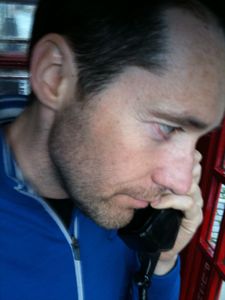What makes a good conversational statement Part 1

Okay, I admit I have a reputation as a demanding pr*ck. Ha. But at least a couple of my demands I think are understandable. I demand my clients ask fewer questions and instead, make more statements.
See, I’m not sooo bad after all.
But what exactly makes a good statement?
Well, a good statement has one or more of the following characteristics:
- It’s personal. Your statement says something about you - who you are, what turns you on, what scares you.
“The yuppies in San Francisco make me sneer. But to tell the truth, I’m afraid of becoming like them, buying a Prius, eating pie, talking about my Iphone app idea all the freaking time.”
-
It takes a position: “I’d like to move our company to Bangkok. Labor there is so cheap there it’s like legal slavery.”
-
IT PROVOKES AN EMOTIONAL REACTION: “I think French girls kiss better than American girls. There’s a reason the Eiffel Tower is a tower.”
-
It contains plenty of action. Count the action verbs:
“I want to walk up to that French girl, turn her around, gaze into her eyes and kiss her. Then I want to spank her continental butt with a baguette.”
- It involves the characters of you and/or your conversational partner:
“I like pudding.”
“I bet you’d be good at eating pudding.”
“I’d like to compete in a pudding eating contest with you - in bed.”
- It invites conversation:
“I wonder if you ever feel as if you’d like to get away from everything. Lately I’ve been wanting to just go live in a Buddhist Monastery in Cambodia like Sylvester Stallone in Rambo Three, or was that Four, oh well you know what I’m saying.”
- It puts you at risk of rejection, not your partner.
“I would like to spend more time getting to know you. I’m thinking a date. We would walk in the park followed by drinking hot chocolate and if we both feel the sparks a tongue hockey match - to the death.”
Want to learn more? Conversation Camps this Month: New York 15-16
All the best, Wayne Elise
